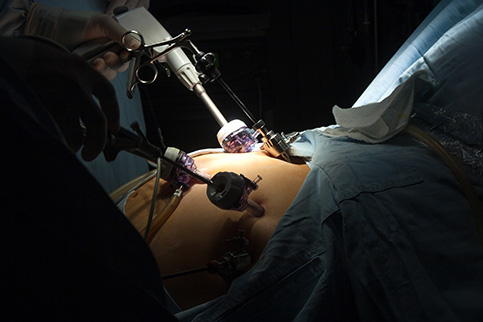Gastric Bypass Recovery – Quick Tips
-

Gastric bypass is the most common bariatric surgery and considered to be the “gold standard” in weight loss surgery, according to the American Society for Metabolic and Bariatric Surgery (ASMBS). The procedure is performed under general anesthesia and can take anywhere from one to four hours to perform depending on the specific technique used and the individual considerations of the patient. The invasive surgery — which requires a post-operative hospital stay ranging from one to seven days — can greatly improve quality of life for recipients who have been unable to lose adequate weight through a more traditional course of diet and exercise.
On average, most people require two to five weeks of recovery time before normal activities can resume. Here are seven quick tips designed to help speed up gastric bypass recovery.
-
1. Walk Around Early

One of the most important tips to an early gastric bypass recovery is getting up and walking around as soon as you’re physically able. This will require some pain tolerance, but the benefits far exceed the discomfort. That isn’t to say you should be walking miles or doing anything overly strenuous, but in the days after your surgery, you should make a point of walking around the house as much as possible. This forced exercise also represents a good start to the new, energized, physically active lifestyle that gastric bypass can provide.
-
2. Follow the Doctor's Orders

It should go without saying that the most important post-operative recovery tip is to listen to your doctor and follow his or her instructions. You’re trusting the surgeon with your surgery and should therefore ascribe the same level of trust to your post-operative care. Your doctor will provide a list of do’s and don’ts for you to follow, and will work with you through several follow-up appointments. If you have any questions about post-operative management or the recovery process, don’t hesitate to bring them up.
-
3. Focus on Your Diet

Strict adherence to the post-operative diet set up by your doctor is essential not only to your recovery, but also to the effectiveness of the procedure in general. (Keep in mind that you’ve had an invasive surgery on your stomach.) The first week of recovery will likely be limited to a clear liquid diet, followed by pureed foods for another couple of weeks and soft foods for as long as two months thereafter. Don’t expect to be chowing down on any solid foods for several months after surgery. And keep in mind that you’ll have lifetime dietary changes that will need to be adhered to in order to maximize the effects of the surgery.
-
4. Avoid Pregnancy… for a Little While

If you are planning on having children, you should discuss this with your surgeon during the consultation stage. Gastric bypass surgery does not inhibit pregnancy, though you will be well advised to wait the appropriate amount of time after surgery for your weight and health to stabilize. At a minimum, this could be as long as 18 months, though your doctor may advise you to wait even longer.
This is a long time to wait if you are anxiously looking to have children, though keep in mind that the health benefits associated with gastric bypass weight loss could make a huge difference in the health of your child.
-
5. Stay Hydrated

It is incredibly important to stay hydrated during your recovery to help your body along. Small, frequent sips of water throughout the day will help to ensure a speedy recovery. The initial stages of your recovery require an all-liquid diet, so it’s important that you don’t forget about water. Other approved low-calorie beverages should absolutely be incorporated, but regular water consumption is essential.
-
6. Communicate

It is imperative that you be communicative with your doctor after gastric bypass surgery. Speak with your doctor about any issues or questions you might have during the recovery period. It’s not only a big physical transformation, but also a big emotional/psychological transformation as well. Speak with friends and family if you find yourself struggling to adjust at any point. The simple act of changing your diet can be more of a challenge than you might think. Don’t be afraid to ask for help.
-
7. Take Advantage of Support Groups

Following on the theme of communication, remember that you are not alone. There are countless others just like you who have gone through, are going through or are thinking about going through with weight loss surgery. Take advantage of weight loss surgery support groups to help boost your morale and speed your recovery. In fact, studies have shown that support group participants lose more weight on average after surgery than those who go it alone. There’s strength in numbers.
To read more about gastric bypass surgery, check out the following:








